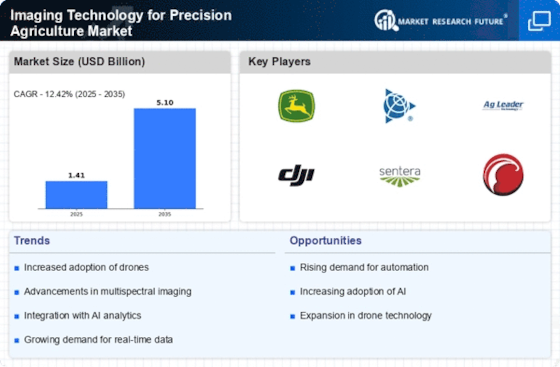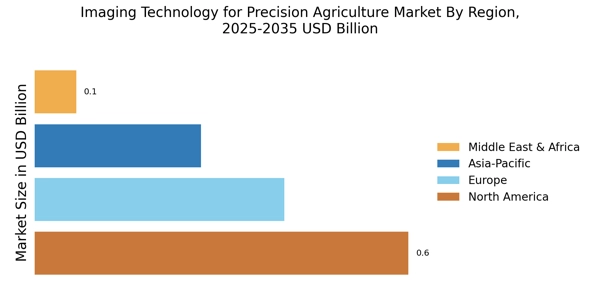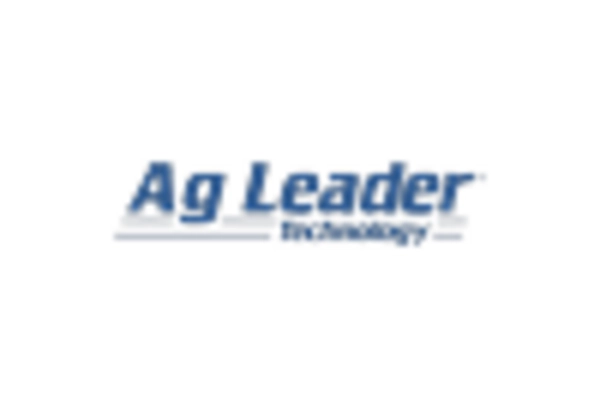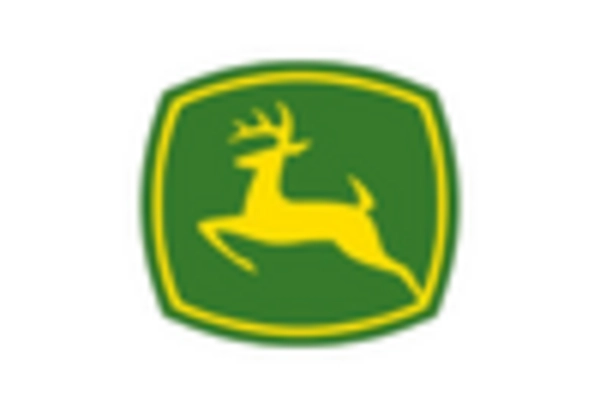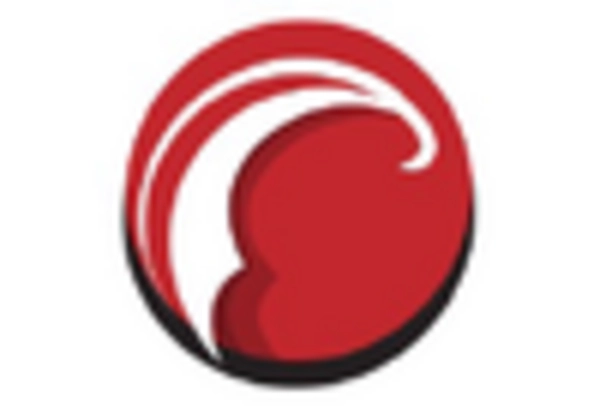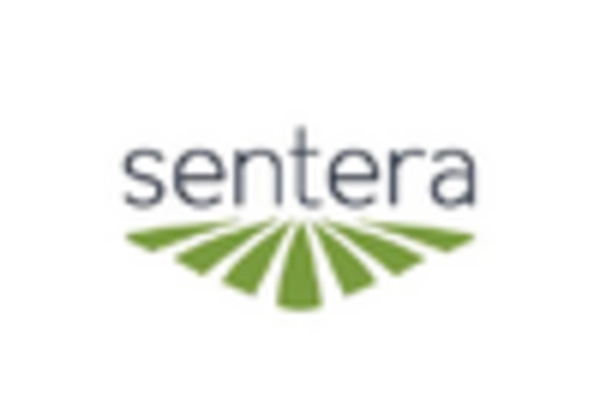Advancements in Imaging Sensors
The Imaging Technology for Precision Agriculture Market is experiencing a surge in advancements related to imaging sensors. These sensors, which include multispectral and hyperspectral imaging, are becoming increasingly sophisticated, allowing for more accurate data collection regarding crop health and soil conditions. The integration of these advanced sensors into agricultural practices enables farmers to monitor their fields with unprecedented precision. As a result, the market for imaging technology is projected to grow significantly, with estimates suggesting a compound annual growth rate of over 15% in the coming years. This growth is driven by the need for enhanced crop management and the optimization of resource use, which are critical for sustainable agricultural practices.
Integration of IoT in Agriculture
The Imaging Technology for Precision Agriculture Market is experiencing a transformative phase with the integration of Internet of Things (IoT) technologies. IoT devices, when combined with imaging technologies, facilitate real-time monitoring and data collection from agricultural fields. This integration allows for seamless communication between devices, enabling farmers to make timely decisions based on accurate data. The market is projected to expand as IoT adoption in agriculture increases, with estimates indicating that the IoT in agriculture market could reach USD 20 billion by 2026. This trend underscores the potential for imaging technology to enhance operational efficiency and improve overall farm management.
Government Initiatives and Support
The Imaging Technology for Precision Agriculture Market is benefiting from various government initiatives aimed at promoting technological adoption in agriculture. Many governments are implementing policies that encourage the use of advanced imaging technologies to enhance food security and agricultural efficiency. For instance, funding programs and grants are being offered to farmers who invest in precision agriculture technologies, including imaging systems. This support is crucial, as it not only reduces the financial burden on farmers but also fosters innovation within the sector. As a result, the market is likely to see increased participation from small and medium-sized enterprises, contributing to a more robust and competitive landscape.
Growing Awareness of Environmental Impact
The Imaging Technology for Precision Agriculture Market is increasingly influenced by the growing awareness of environmental sustainability among farmers and consumers alike. As agricultural practices come under scrutiny for their environmental impact, imaging technologies offer solutions that promote sustainable farming. By enabling precise application of inputs such as water, fertilizers, and pesticides, these technologies help minimize waste and reduce the ecological footprint of farming operations. This shift towards environmentally friendly practices is likely to drive demand for imaging technology, as stakeholders seek to align with sustainability goals and meet consumer expectations for responsible agriculture.
Rising Demand for Data-Driven Agriculture
The Imaging Technology for Precision Agriculture Market is witnessing a notable increase in the demand for data-driven agricultural practices. Farmers are increasingly recognizing the value of data analytics in improving crop yields and reducing operational costs. Imaging technologies provide essential data that can be analyzed to make informed decisions regarding irrigation, fertilization, and pest control. This trend is supported by a growing body of evidence indicating that data-driven approaches can lead to yield increases of up to 20%. As agricultural stakeholders seek to enhance productivity and sustainability, the reliance on imaging technology is expected to intensify, further propelling market growth.


